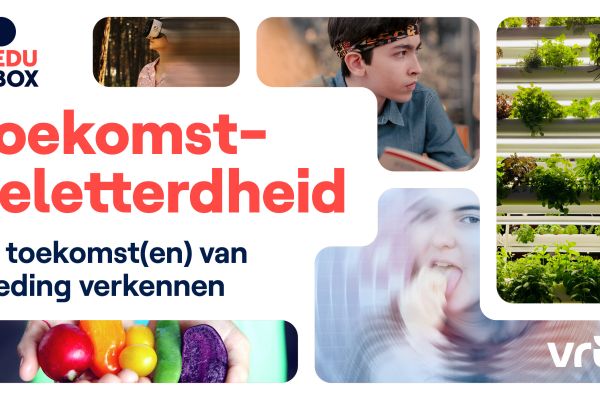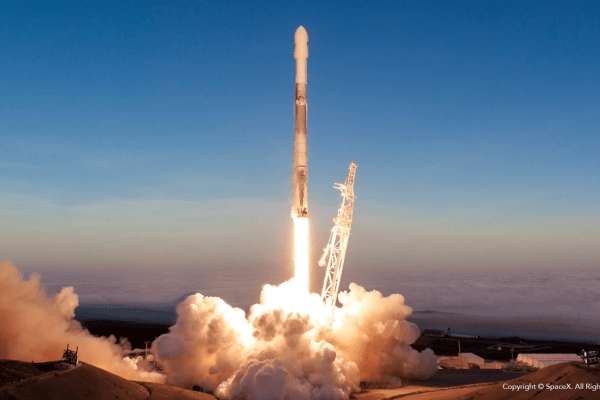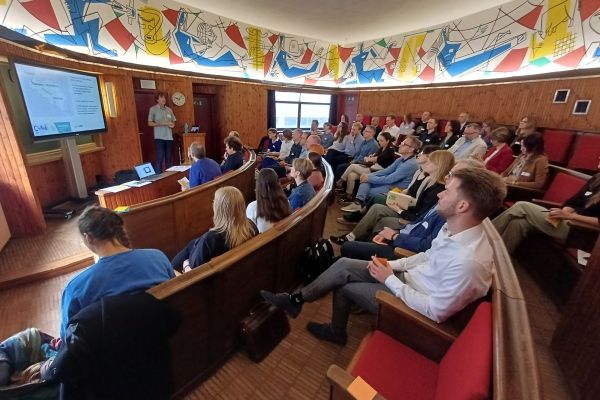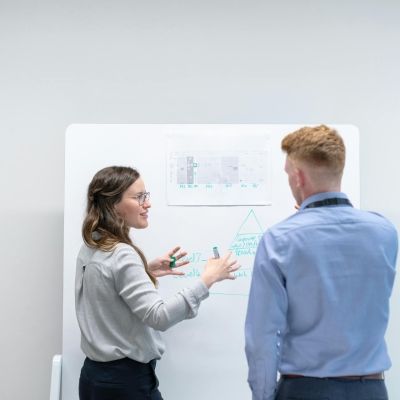VITO employee in the spothlight: Jurgen Everaerts
Since he graduated from KU Leuven in 1988 with a physics degree, Jurgen Everaerts (58) has worked for about five companies and organisations. However, the technology behind remote sensing is a common thread throughout his well-filled career. Today, within his Remote Sensing department, he is strongly advocating rejuvenation and diversity. ‘I am driven by stimulating and supporting young people.’
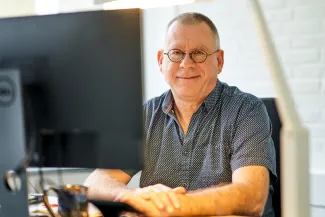
You have worked at VITO since 2003. Were you involved with remote sensing from the very beginning?
‘Yes. The very first project I worked on was Pegasus, a solarpowered stratospheric drone for observations of the earth’s surface. That was a real pioneering project, because today this type of drone is still in the development phase. You could say that with Pegasus, we were 20 years ahead of the game. With that project, we gained invaluable knowledge and experience about how to reduce the weight of drone cameras, how to increase the resolution of aerial images and how to fly this type of aircraft in poor weather conditions. Thus began with Pegasus a new specialisation within the Remote Sensing unit.’
How exactly did that happen?
‘Before the Pegasus project, the unit was mainly working on satellite images with a maximum resolution of one kilometre. In 2004, aerial images became available with a resolution of 20 to 10 centimetres. That is, of course, on a completely different scale, which made us more relevant, especially in Flanders. It was also the beginning of a close cooperation with the Flemish government in the field of remote sens
From 2010 to 2015, you were responsible for the rollout of Maconomy within VITO. What exactly did that entail?
‘With that project we centralised and simplified both the project and the financial management of VITO. It was something completely different from remote sensing, but it did give me the opportunity to get to know the whole organisation of VITO. I visited all units and consulted with colleagues in every department. Apart from the successful implementation of Maconomy, this internal cooperation gave me great satisfaction.’
Then you returned to Remote Sensing, but not to limit yourself to one project.
‘Since then, I have combined several things. For example, I am project manager for Terrascope, with which we make satellite images of Copernicus, the European earth observation system, publicly available.
I also do a lot of outreach. I enjoy speaking at colleges, universities and conferences (for example, for geography teachers). And sometimes I supervise a student’s final year project or a thesis. This is very pleasant, because it brings me into contact with younger generations and with new ideas, perspectives and technologies. It is all very inspiring.
In addition, within our unit I am also a member of our project office, which helps streamline project work, so that our researchers and IT specialists - there are more than 100 of us - can focus as much as possible on the content of their work and less on administration.’
You have been working at VITO for almost 20 years. How do you look at your job today?
‘I am now in a phase where I want to stimulate and support new employees, who are often still very young, as much as possible. Their fresh ideas and youthful enthusiasm are things we should cherish. I find that more important now than pursuing my own career, and I get a lot of satisfaction from that. The influx of new colleagues also increases the diversity within our unit. That, in turn, ensures that we are able to think about and develop solutions for tomorrow’s challenges.’
Today there is a shortage on the labour market. Are you experiencing problems in your search for new colleagues?
‘We may have struggled with this to some extent when we were specifically looking for remote sensing specialists. Until we decided to start looking more broadly, for data scientists. The pool is much bigger and data scientists also have the (mainly digital) basic skills on which remote sensing is built.
Finding and attracting computer scientists is a different story. They are in great demand on the labour market, so we have to emphasise VITO’s strengths. Our appeal is largely in line with that of VITO in general, with strengths such as the sustainability aspect and social relevance. More specifically for our unit, we also have high technology in the field of IT and remote sensing. In that field, we really are among the international frontrunners.’




